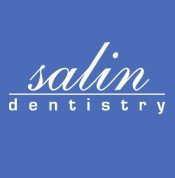Dental Options for Really Bad Teeth (Cosmetic & Reconstructive)
Are you struggling with bad teeth? Don't worry, we understand the impact that dental issues can have on your confidence and overall well-being. Fortunately, modern dentistry provides a range of treatments to address various dental issues. From restorative procedures that replace severely decayed or missing teeth to cosmetic treatments that improve your teeth's appearance, there's a solution to transform your smile and restore your confidence.
Options to Restore Damaged, Decayed, or Missing Teeth
When patients at our Bakersfield, CA office say, "I have really bad teeth, what are my options?", they're seeking solutions that offer both functionality and aesthetics. The following are among the top restorative treatments we recommend to our patients:
1. Dental Implants
Dental implants are usually the top choice for patients with severely damaged teeth and offer a natural-looking permanent solution.
A dental implant, which replaces your entire tooth, consists of a titanium screw that is surgically placed into your jawbone to provide a strong foundation for a custom-made crown that closely resembles your natural tooth. It can even improve upon what your teeth look like.
The most common type of dental implants used are endosteal implants. They fuse with the jaw bone through osseointegration and stimulate bone growth, deter bone loss, and maintain structural stability.
All-on-4 and All-on-6 Implant Solutions
Patients with really bad teeth who are deemed ineligible for traditional dental implants due to significant bone loss may find hope with the all-on-4 or all-on-6 dental implant solutions. Both solutions offer a full, fixed denture supported by just 4 or 6 dental implants that are strategically placed in the jawbone for maximum support.
The all-on-4 and all-on-6 solutions are also known as "teeth in a day" because they can provide you with a new set of teeth in a single day and are excellent alternatives for those unable to benefit from traditional implants.
Whether you're replacing a single tooth or an entire arch, dental implants act and look like your real teeth, restoring function, aesthetics, and confidence.
2. Full or Partial Dentures
For patients who prefer a non-surgical solution, dentures can be used to replace missing teeth following tooth extractions due to severe dental issues.
Removable dentures, whether partial or full, can aid in speech, alleviate pressure on adjacent teeth, reduce jaw issues, and allow for better chewing while improving your smile.
3. Dental Bridges
A dental bridge, which is carefully crafted to blend with your natural teeth, is another option in restorative dentistry used to replace either one missing tooth or multiple teeth. This restoration consists of artificial teeth anchored to the adjacent remaining teeth or dental implants.
Options to Repair Decayed or Damaged Teeth
The function and aesthetics of your damaged or decayed teeth can be restored via the following treatment options:
4. Cavity Fillings
When contemplating ways to repair a damaged tooth, the first option that often comes to mind is a filling. While a cavity filling doesn't restore the entire tooth, it effectively replaces the removed decayed portion. Once in place, the filling seals off the cavity, preventing further damage and safeguarding the remaining healthy tooth structure.
5. Endodontic (Root Canal) Therapy
A root canal is a highly effective procedure for saving a damaged or infected tooth. The dentist removes the infected pulp, cleans the root canal, and seals the tooth to prevent further damage. With the proper care, a root canal can help preserve your natural tooth for years to come.
6. Dental Crowns
When a tooth is severely damaged, cracked, or weakened, a dental crown can provide the necessary reinforcement and protection. A custom-made dental crown fits snugly over the existing tooth to restore its original size, shape, and strength.
7. Inlays and Onlays
Inlays and onlays are utilized for especially large cavities. They serve as a suitable option when the damage requires more than a simple filling but falls short of needing a crown.
An onlay fixes the section of the tooth that is either severely damaged or entirely missing, while an inlay fills gaps between a tooth's cusps.
Cosmetic Options for Bad Teeth
Enhance your smile with these cosmetic treatments designed to conceal imperfections:
8. Porcelain Veneers
For patients seeking cosmetic enhancement, porcelain veneers offer a minimally invasive solution for improving the appearance of their smile. Thin porcelain shells are bonded to the front surface of each tooth, covering imperfections like tooth discoloration, stains, chips, or gaps between teeth.
9. Dental Bonding
Dental bonding can be used to correct minor imperfections such as chipped teeth, cracks, or gaps between teeth. During the bonding process, a tooth-colored resin is applied to the affected tooth and sculpted to achieve the desired shape and appearance.
10. Teeth Whitening
When you're dealing with really bad teeth, discoloration can add another layer of frustration and self-consciousness. Tooth discoloration can be caused by diet (coffee and tea), lifestyle choices (smoking and tobacco use), and the natural aging process (thinner enamel allows the yellowish dentin to show through).
Regardless of the cause, professional teeth whitening treatments target stains and discoloration, significantly improving the brightness and vibrancy of your smile.
Align Crooked Teeth
Straighten your smile with this effective option for aligning crooked teeth:
11. Invisalign
Crooked or misaligned teeth can affect your oral health and your confidence. Invisalign offers a discreet and convenient alternative to traditional braces for straightening crooked teeth. These clear aligners gradually shift your teeth into the desired position, providing a comfortable and effective solution for achieving proper alignment in about 6 to 12 months.
Non-Invasive Dental Treatments
You can enhance your oral health with these non-invasive treatments:
12. Fluoride Treatments
Fluoride treatments are an essential part of preventive dental care, especially for individuals prone to cavities or tooth decay. Fluoride treatments can reduce enamel solubility, making the enamel more resistant to future decay.
13. Teeth Cleaning
Even for those with severe dental issues, regular teeth cleanings play a vital role. Skilled hygienists meticulously remove plaque, tartar, and stains, helping to prevent further decay and gum disease. These sessions, along with tailored oral care advice, are essential steps toward restoring oral health and confidence, even for those with significant dental concerns.
What Causes Bad Teeth?
There are a few common factors that contribute to dental issues and impact oral health:
Genetics and hereditary factors can influence the strength of your teeth, your jaw structure, and how susceptible you are to cavities. The good news is that it may simply require more diligent oral care routines to overcome your predisposition to dental problems due to your genetic makeup.
Diets with frequent sugar consumption lead to the formation of pathogenic biofilm on the teeth, eroding tooth enamel and causing dental problems.
Poor oral hygiene leads to plaque and tartar buildup which fosters gum disease.
Smoking and tobacco usage contribute to dental diseases including gum disease, tooth decay, and oral cancer.
Skipping your dental checkups and cleanings allows dental diseases to go unnoticed. Early detection enables timely intervention before dental issues worsen.
Assessing Your Oral Health Needs
Consulting an experienced dentist is the first step in assessing your dental needs. Physical examinations and X-rays will help your dentist uncover hidden problems like cavities or infections and aid in the development of a tailored treatment plan.
Financial Considerations
Understanding the financial aspect of dental care is vital when evaluating treatment options. Costs vary depending on factors like the procedure's complexity and the materials used as well as your dentist’s geographic location and level of experience. Therefore, it's crucial to assess the potential financial implications before making decisions.
Insurance Support
Navigating dental insurance is essential for managing your dental costs. Since different procedures may have varying coverage levels, it is important to carefully review your policy details to determine which treatments are included and to what extent.
If dental implants are an option you are considering, review our guide on How to Get Dental Implants Covered by Insurance to assist you with your decision.
Prevention and Ongoing Care
Taking proactive measures can safeguard your oral health. We recommend the following practices:
Prioritize good oral hygiene by establishing a daily routine of proper brushing, flossing, and mouthwash use to prevent future dental problems and lay a strong foundation before receiving any required treatments.
Visit your dentist regularly for check-ups and cleanings to allow for early detection and timely intervention of emerging dental issues.
Make lifestyle adjustments by adopting a balanced diet low in sugary and acidic foods to support healthy teeth and gums. Quitting tobacco use can significantly improve dental health and reduce the risk of gum disease and oral cancer.
Smile Transformation: Your Path to Confidence
If you have really bad teeth, there are numerous dental options available. From restorative options like dental implants to cosmetic solutions like veneers, modern dentistry offers tailored treatments for restoring really bad teeth.
Start by consulting with an experienced dentist who will assess your oral health needs and develop a personalized treatment plan to achieve the beautiful smile you desire. Taking preventive measures by prioritizing good oral hygiene, having regular dental check-ups and cleanings, and making necessary lifestyle adjustments will help to make your chosen dental treatments a success.

